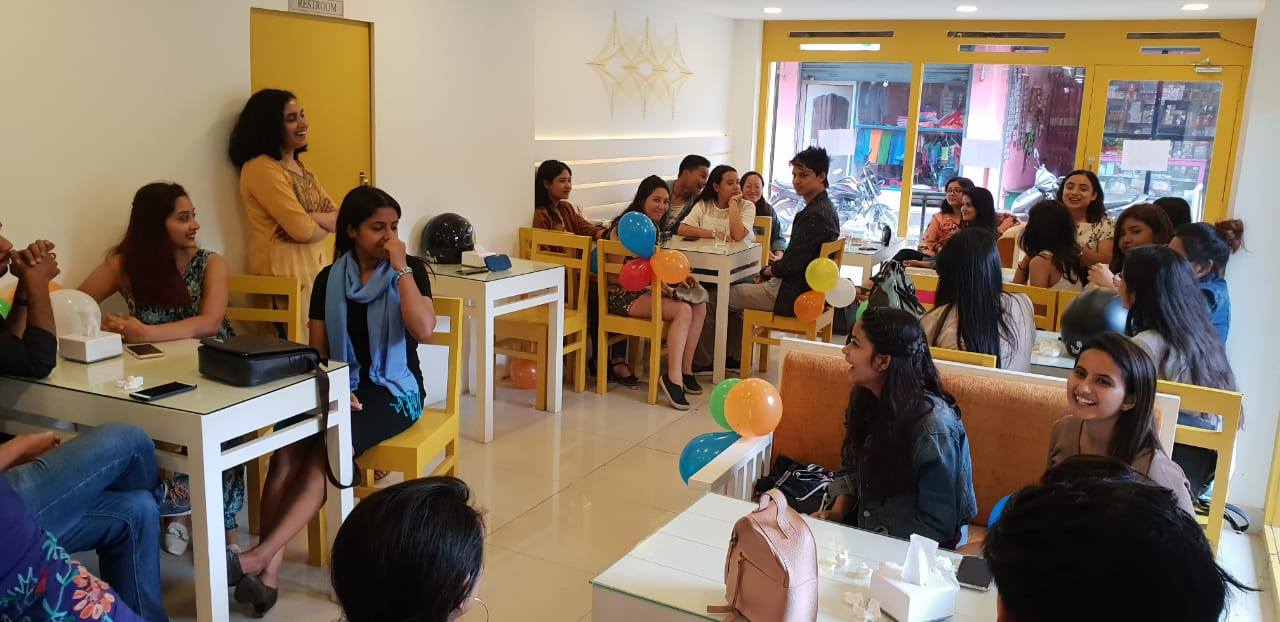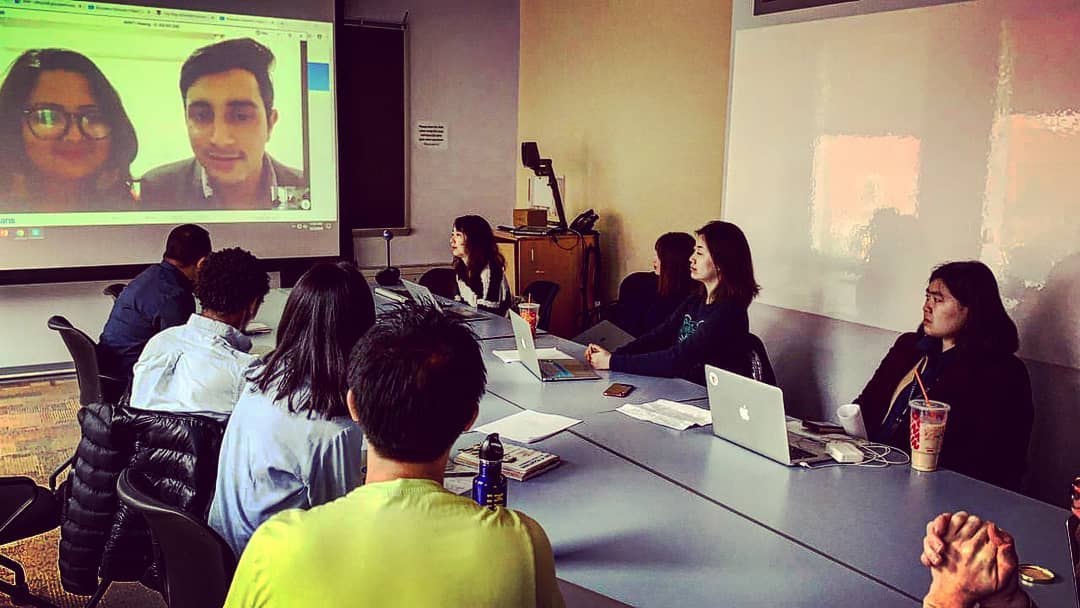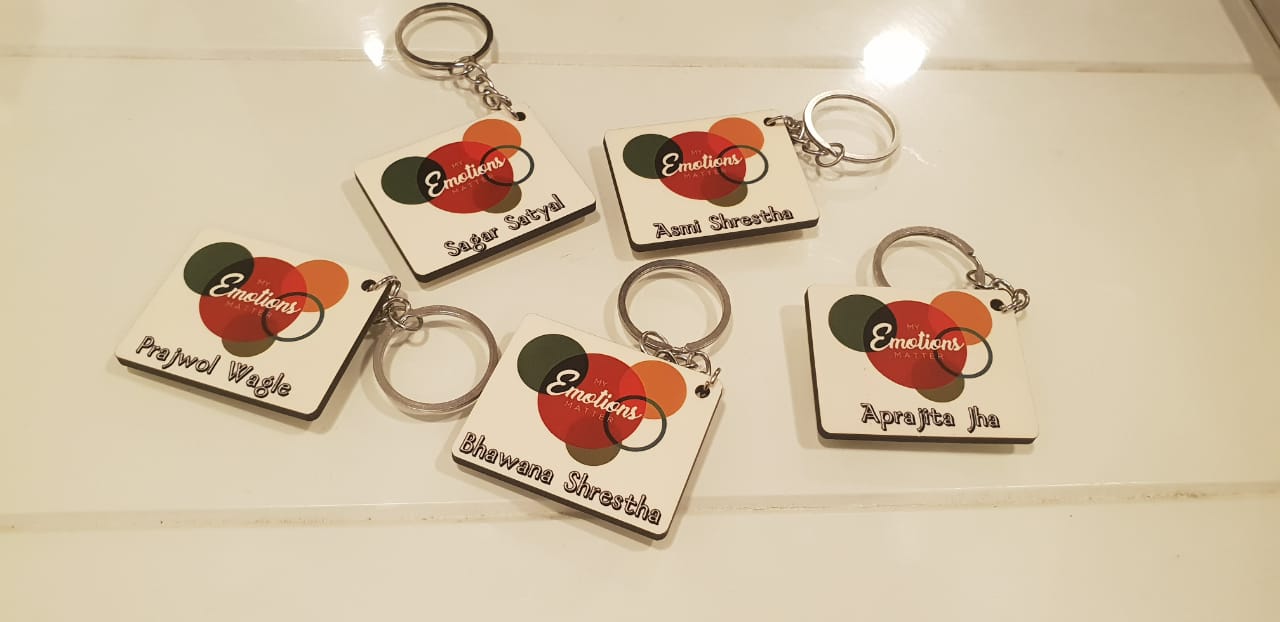SOCIAL ENTREPRENEURSHIP BLOG SERIES ISSUE NO. 17: BIKAS UDHYAMI: We Found Purpose in Emotional Intelligence: The Story of My Emotions Matter
Kathmandu city is buzzing. Everyone is a rush. People are busy with going to work, selling things in shops or on the streets, buying groceries, going to school and many other things. In their private lives, people are increasingly spending time on their phones communicating with family and friends via social media.There is limited space to express their inner feelings and share their thoughts with other people face to face when they have something heavy on their head and heart. My Emotions Matter recognizes this situation and creates a safe space where people can feel at ease and share their thoughts to develop their emotional intelligence. They can ask questions to themselves, evaluate their own situation and learn from each other. Sagar Satyal and Bhawana Shrestha, co-founders, sit with Bikas Udhyami and share their journey and the impact of their initiative.
What was the sparkle that motivated you to start this initiative?
Sagar: When I was a child, I was active, vocal and used to score good grades. I got praise every day, which gave me a load of expectations. I grew up as a ‘can do anything’ boy, without knowing what that means. In 2015-16, some incidents struck me. I lost some people from my life. I made some wrong decisions and faced money problems. It was one of the lowest points of my life. Then I realized I was not as strong and capable as people thought. I doubted if I had the qualities as a person to overcome such challenging situations. That was my first reflection on myself. I realized the importance of emotional resilience.
I began a mentorship program at King’s College for 3 undergraduates. It was an experiment that turned out to be working well. Soon the number of participants grew. People used to come, talk about life and share different things. We practiced self-awareness and skills development. Bhawana later joined as a mentor. We started talking and found our beliefs and ideas syncing really well. Hence we pushed forward with starting My Emotions Matter.
Bhawana: I came to Kathmandu with a dream to be a TV journalist. I wanted to cover social issues that would be impactful.
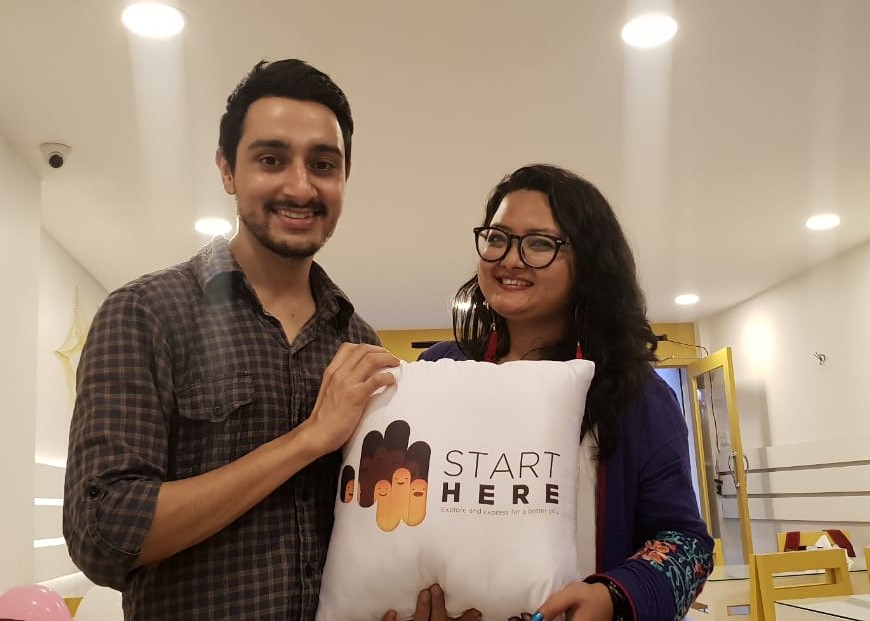
After spending some time in TV, I landed up being a 'Teach For Nepal' fellow and started teaching in a school in Lalitpur. Like Sagar, I too was a good student so I used to think that I would make a very good teacher. But when I taught, I realized the difference in students' capacity to understand things. Each one is different from each other. One thing that works for one student does not necessarily work for another student. Many of my students were from broken families. Their parents were outside the valley or some of them were living with single parents. Learning new things under such challenging circumstances was not that easy for them. They used to cry. They were vulnerable. I started listening and talking to them. That conversation was helpful for them and me. I wanted to share my realization with other teachers and was looking for a way. Before joining My Emotions Matter, I had joined an Mphil course and was doing my research on students. I met 200 students studying in various universities in Nepal and asked what kind of teacher they wanted or felt comfortable with. They answered that they were looking for someone who would be emphatic towards them.
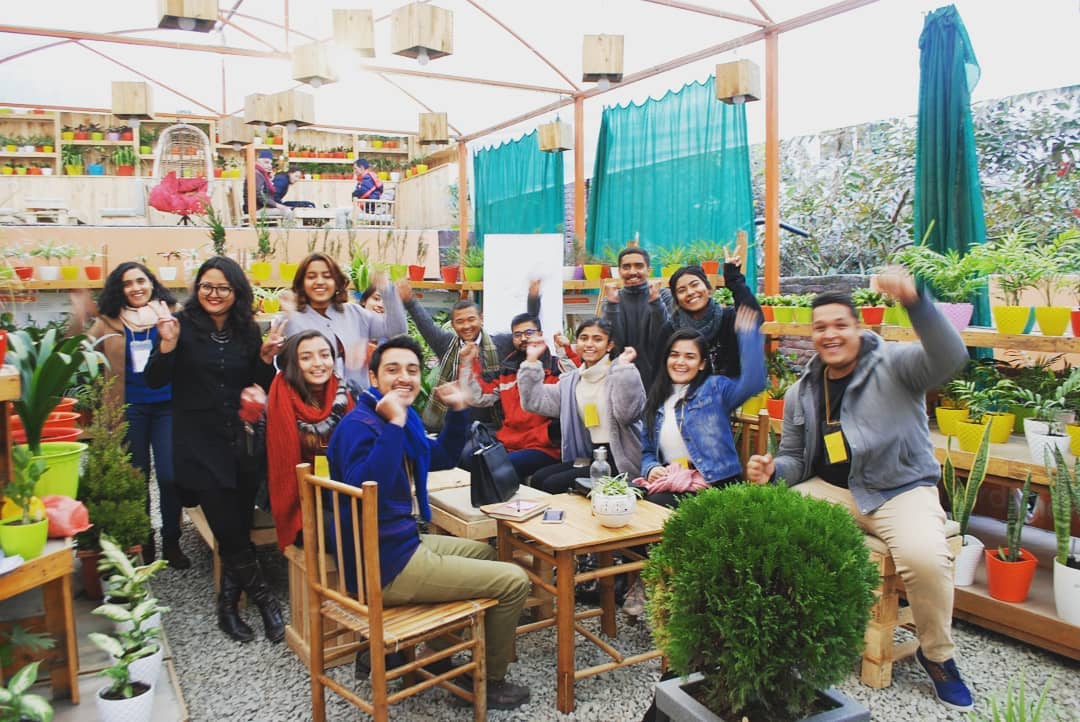
How hard it was to pave the way forward? People say it is difficult to start a business here, especially when the concept behind the business is new.
Bhawana: The registration hassle came first. Registering the English name was difficult,so was persuading the administrative officers that we can pay taxes. They were not so encouraging to young entrepreneurs like us. Another problem we faced was to establish the concept itself. In Nepal, if someone talks about emotional issues, people dismiss them as mental issues. But what we are doing is neither related to psychology nor to education. We are trying to stand in the middle to provide comfort to address both spectrums. We are focusing on emotional intelligence over the intelligence quotient (IQ). It is not related to mental health. It took time for us to make people understand these things. We had to create the scope first to gain business. Persuading people was not easy. People saw emotional intelligence as a luxury. They would say people are working fine at their office, so they do not need emotional intelligence.. They felt that granting them vacation was enough.
Why is emotional intelligence important?
Sagar: Because we are living in an objective world, but living through a subjective experience. Anything that you like, I might not like. We are surrounded by choices that remain within us as individuals. It is very necessary to question our likings and know our values and preferences . We might end up pursuing the career that we never liked. Just because our father or mother wants us to pursue a certain career or just because our friends tell us so, we might be choosing a certain path. You might end up marrying the person you are not compatible with and you might end up blaming them for the consequences. We fail to see our weaknesses and become more like complainers who are not reflective. In contrast, you could see your role and what you could have done differently in that situation. We should be able to manage our emotions and if we cannot do that, we suffer in our mental health.
We have the tendency to recognize something at the very last stage. We let the situation go worse by being indifferent at the beginning. People usually stop you from being reactive to your situation. They don’t let you be sad. But that is one way of articulating things. These emotions serve as data points for you to go somewhere and talk to someone. We need to find ways to express our emotions. The same happens in the workplace. Employers and employees should give space to each other so that work goes smoother and is more effective.
Bhawana: We are taught to do or behave always good. Students have different ways of understanding and expression. We are not taught to express our weaknesses. Those who stand and go forward to speak are seen as good. But those who remain at the back too have their stories to tell. We often fail to articulate that. Conversations with parents, siblings, friends, partners are becoming less and less. People are not communicating the way they used to. These stresses are not expressed through any means. They do nót know why they are happy and sad. If the children are not speaking properly with their parents, how can you expect them to speak with a crowd?
What are the tools you have used to facilitate the sharing of emotions? How have you built the environment?
Both: Our most important value proposition is friendship. When you come to one of our sessions, nobody will judge you or will give you the feeling that there is something wrong with you. We value people freely expressing their thoughts and
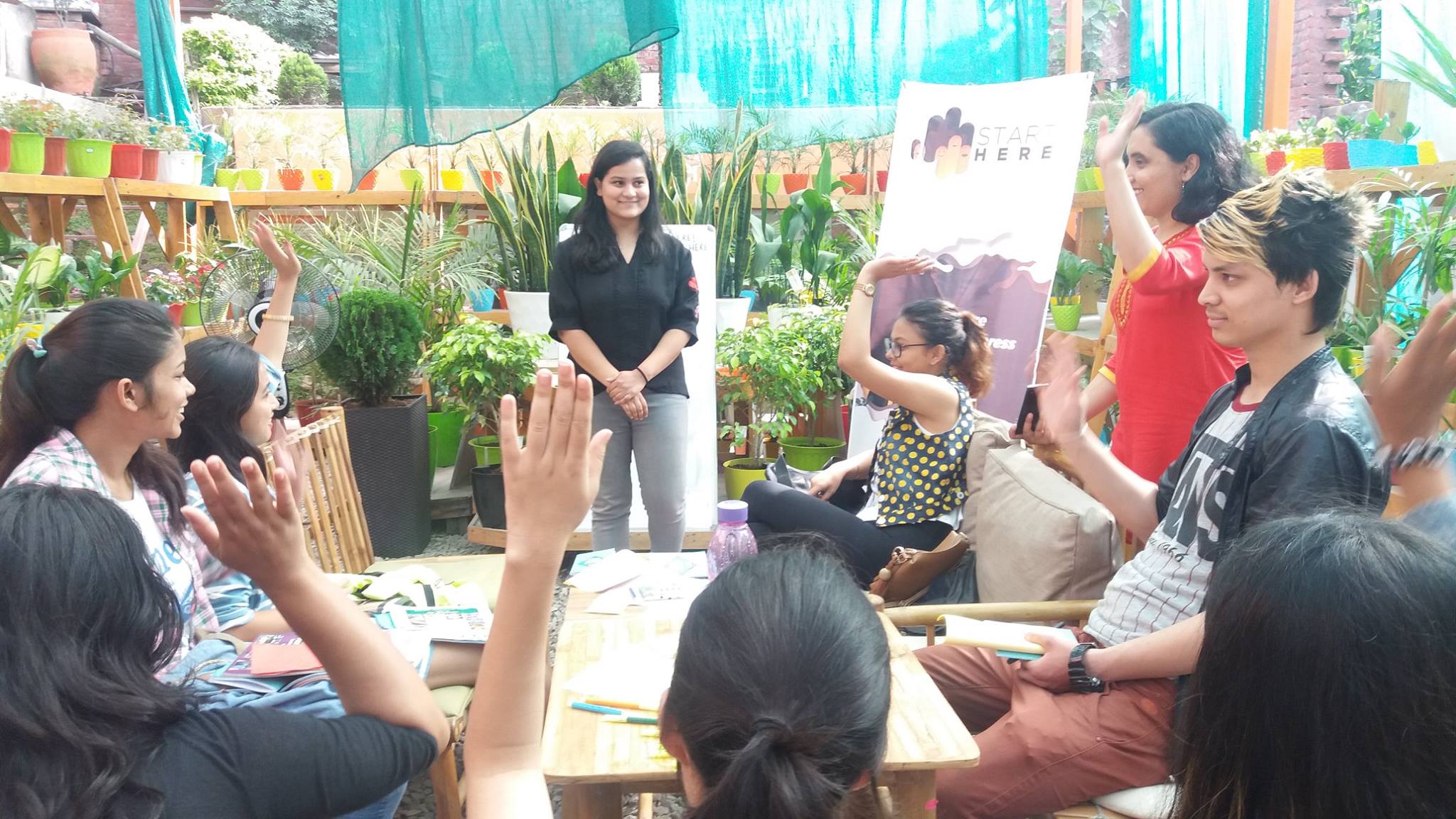
feelings. And sharing doesn’t mean only focusing on negative emotions. Each session has a pre-decided theme that we communicate beforehand so participants know what to expect from the session. We also practice listening. It is important to listen to yourself and others too. You might come to our session and not share anything , but you can listen to others and that also is useful. It gives you the realization that you are not alone. Listening and speaking are both important.
How do people approach you?
Both: We usually work in three segments. For the independent sessions, people approach us through Instagram. Apart from that we also publish and promote event posts on Facebook for upcoming sessions. However, the most powerful way of reaching new audiences is through recommendations. In a city like Kathmandu where everything is so close, referrals do help if the service is authentic. In case of schools, colleges, and organizations, we approach them and persuade them to be our client.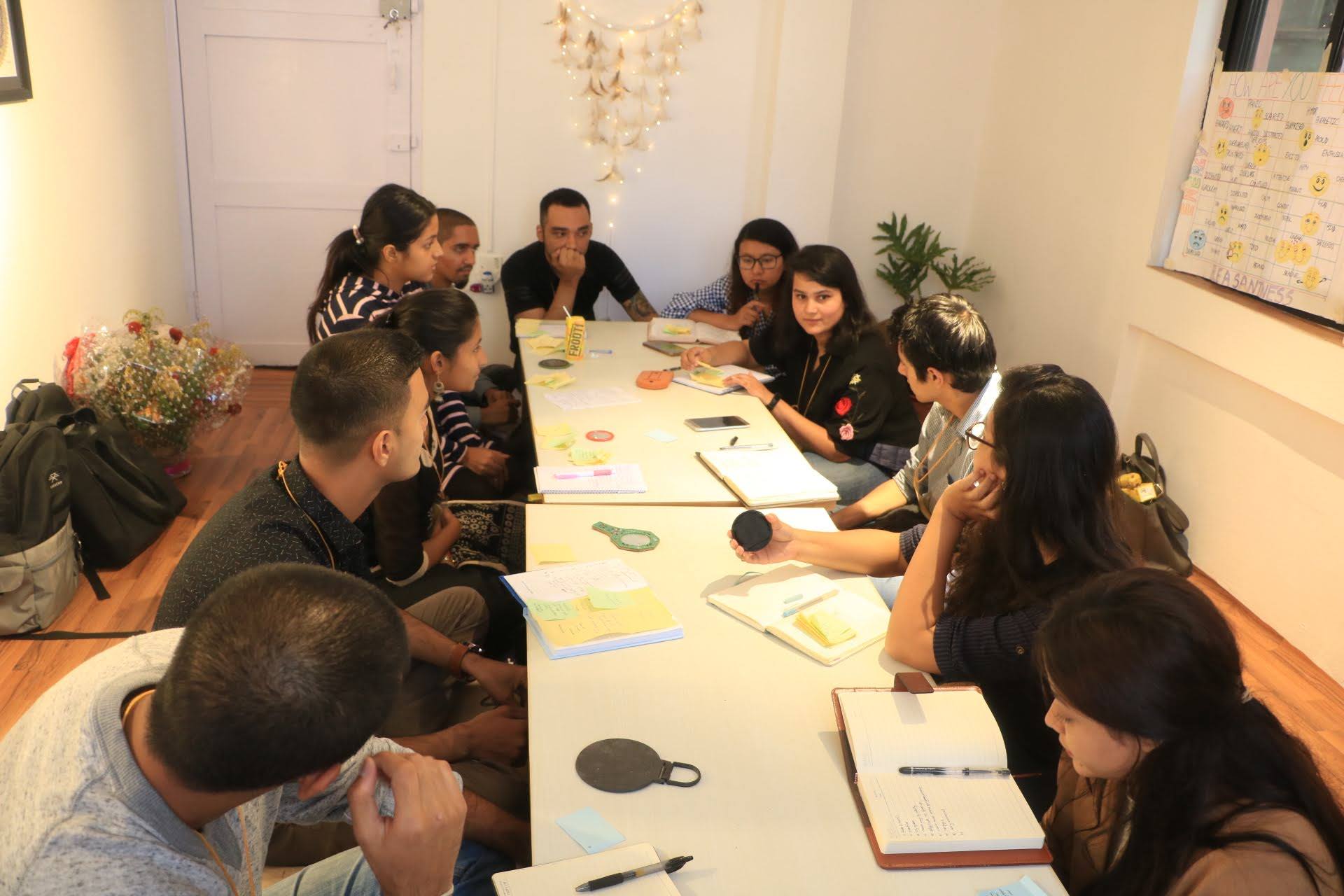
What about the economic aspects of your business? What are the prospects of other people who are interested in setting up a similar business?
Both: We approach some venue partners and conduct independent sessions. People come and pay for the session. One has to pay Rs. 2500 for a session. In one session, 7-15 people can participate. We chose venues which provide a peaceful environment to express oneself.
For corporate sessions, the scale of organizations really matters and it also depends on the hours they choose for the session. We did one session with a Business Advantage company and we got many referrals after that. We are planning to conduct another one soon.. However, is not enough to focus on sessions, so we are moving more towards the consulting model these days.
We also run a podcast to enable people to get a sense of what we do before coming with us. We have been doing this for the last 37 weeks every Tuesday. We are also doing a ‘Chacha Chhachi Session’ illustration session on Instagram where Chhacha has low emotional intelligence and Chhachi has a higher one. In this
In this session, we outline different situations and show how both of them react differently to each situation.
What about the partnership business in Nepal? How are you handling this?
Sagar: I feel that partnerships fail, because priorities change. It feels like people start of at a similar wavelength, but it carries away quickly. We teach self-reflection; therefore, we try this with our team ourselves in every 3-4 months. We are best friends. Our values are similar and we have this moral duty to keep this authenticity, because we are dealing with sensitive issues. We accept that we are not perfect, but we want to be authentic to set a good example.
Bhawana: Another thing for me is there should be mutual growth along with this self-reflection. We are caring about each other’s growth. We share the opportunities equally. We are consciously talking to each other to ensure that our natural jealousy should not hamper our growth. We contribute to each other’s growth this way. Since we are transparent about everything,it has given us space to evaluate, bounce back when things are not going well.You are in a business where you have to create a scope for yourselves as your area of business is new . How difficult is this at this current scenario?
Both: It is very difficult, but we knew this would be difficult before starting our venture. There are times when we go down, but I think frustration escalates most when unexpected things happen. We don’t know if our model will be financially viable, but when we look back on our journey someday we want to see that our effort was worth it. Living our lives with the values that we advocate for is really satisfying for us and we are partnering with other like minded organizations that are happy to be our partners.
How about the social impact of your business?
Sagar: Till date, 1780 people have participated in the 126 independent sessions. This is encouraging for the first year. We have 300 plus regular listeners of our podcasts and this is growing. Many of our participants want to give our session to their parents. Some of them have invited as well. It shows that our concept has really helped them. We have some data that we have collected from our participants in our 10 days program. And we have created an environment in which they now believe that they have their voice as well. They just need to ask the right questions and that really helps.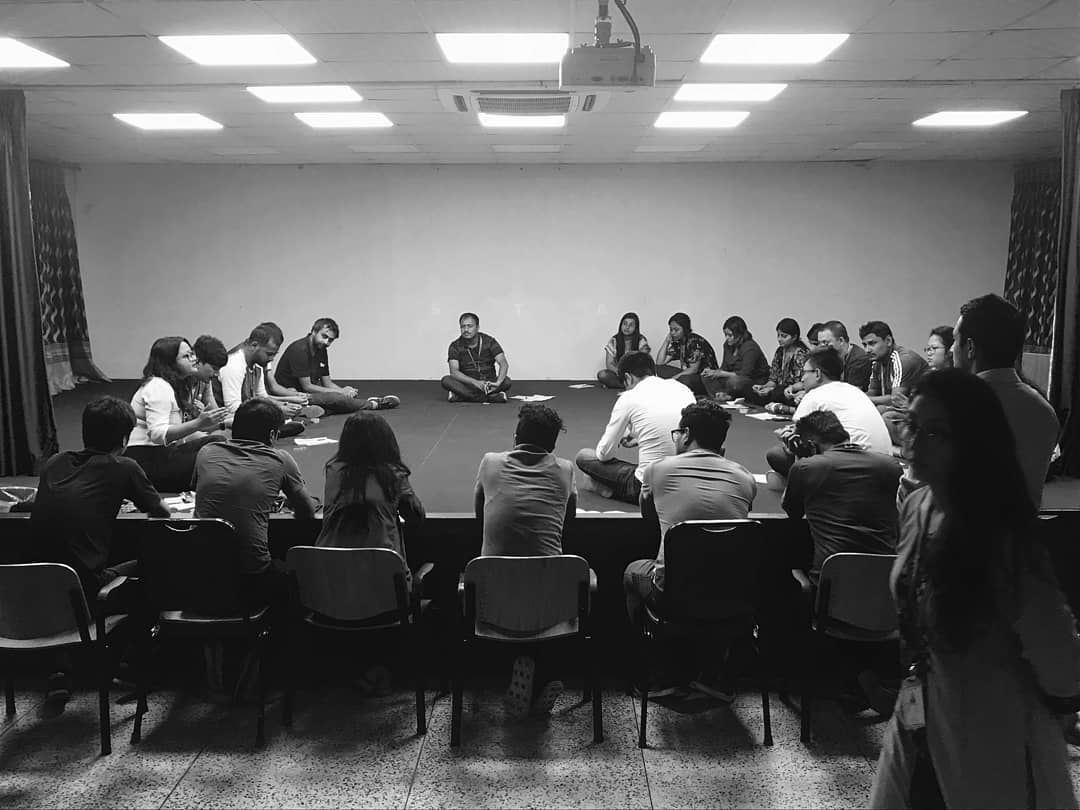
In small ways, they see the value of their life and this is also encouraging. They feel their self-worth.
Bhawana: For me, social impact means a society is really functioning well. To function and function well is different and we are facilitating the latter through individual efforts. We often interact with different people and not everyone is the same. We help people to find themselves in these spaces and recognize their own worth. We teach them to manage and cope with things in a better way. Hence I think we are slowly helping people to reflect back and question themselves. Our impact can be seen at individual level and at relationship level.
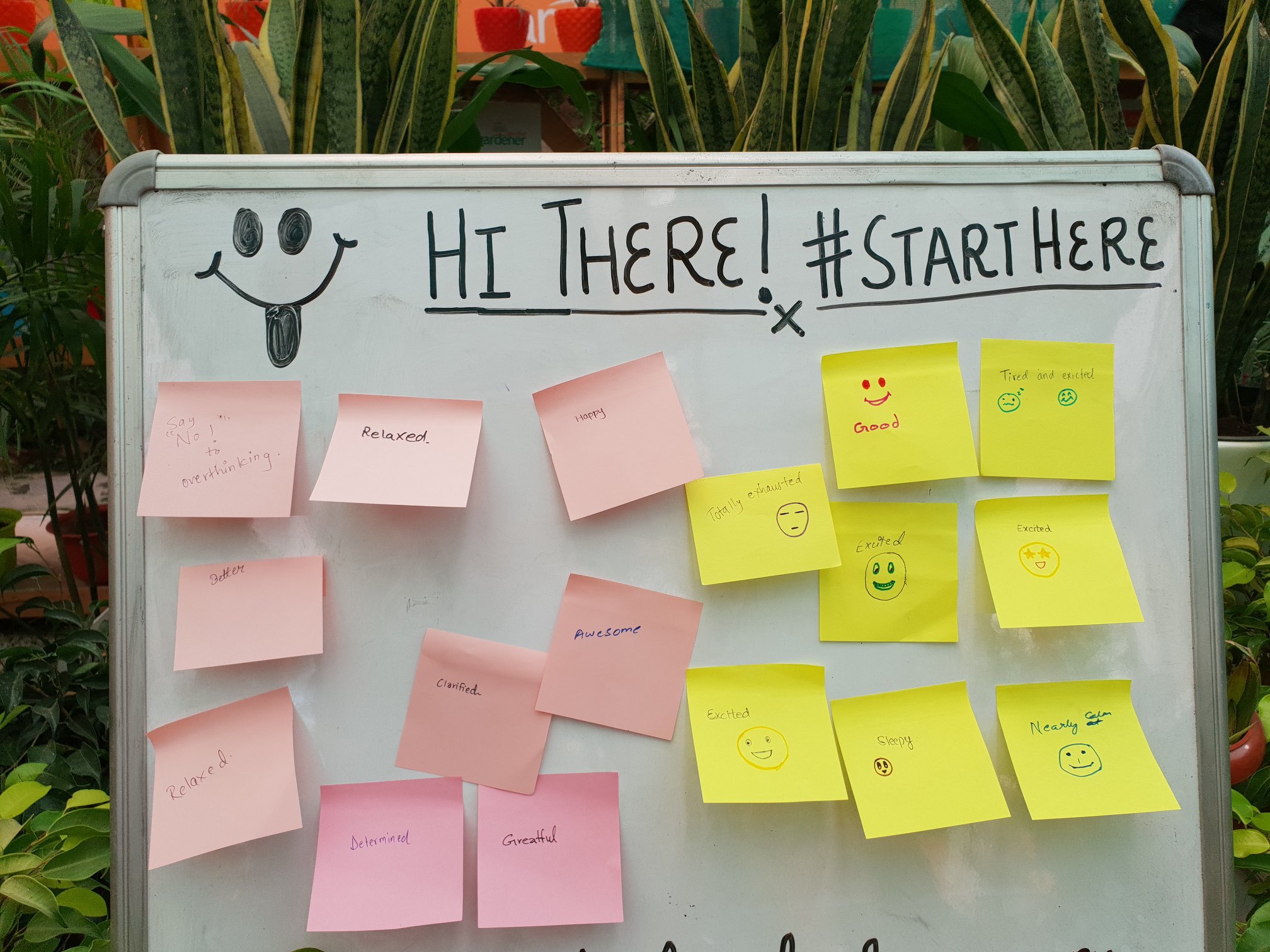
What are the frequent things that you have come across among youths?
Sagar: The most common challenge among youth is overthinking. They think a lot. It doesn’t lead to the solution. It is about assuming things, which keep running through their heads. They lack emotional literacy. If people could label their emotions, emotional management would be easier. But unfortunately, we do not know how to name the emotions we have. We don’t know how to distinguish between feeling good, bad, depressed, sad etc. Depressed is the most common, but mistakenly used emotion nowadays. We should work more to spread emotional vocabulary.
Bhawana: I live at a girl's hostel. There are young girls who are studying at plus two and bachelor. Many of their boyfriends are abroad. The family is not with them. They have to wait for a long time to share the things that they are experiencing g right now. Carrying a load of emotions every day is hard. Also in Kathmandu, many people are living with their cultural baggage and the city confuses them. That confusion is not solved as well. That gets reflected in their behavior. They are aggressive, some of them are extreme. They should be handling the deeper lying issues themselves as well as realize that their problem is temporary. So we help them in this process in such cases.
They should know that things take time to settle. Things take time to grow. It is very important to work on these things.
What are your achievements? What things do you think you have achieved?
Sagar: We have a wonderful team of 5 people working together. We multitask. We research. We are a young team and all of our people believe in the idea. So it is really important to find a team that believes you. . Many of our team members had not heard of emotional intelligence before, but now we have several members who know about it. We are about to go and give a session at the University of Pennsylvania. We are also invited to Malaysia as well. To believe in a concept and expand it internationally is an achievement for us.
Bhawana: There are many people who look up to us. We have done small things but in a meaningful way. We are focusing on the core values of things that are at the root of problems. We are patient enough to be credible , which is critical for sustainability. Achievement for me is when people are referring our sessions to their sister, brother, parents etc. They come continuously. We have earned that. That love is an achievement for me.
In the end, what you want to say for aspiring entrepreneurs?
Sagar: I personally feel that our time is getting more limited every day. We should be able to make good use of our time and do something meaningful. We should try to make this world a better place to live in.
Bhawana: If you are planning to start a business ask yourself what would you be doing if the money was not a consideration? What would you do if you did not need money? Now entrepreneurship is the growing trend among young people in Nepal. Everyone wants to be an entrepreneur. Everyone says I would rather create a job rather than doing it. I do not have anything bad for them to say, but they need to see themselves if they can really do or not. There are problems immediately after you begin. When you are creating a job for people, you need to give them something in return because they are giving you something. This could be of monetary value or something else. To meet people's expectations is very difficult. Ask yourself, will you have the guts to give the money to them without taking that by yourself at least for the few years? If the answer is yes, you can be an entrepreneur.
To know more about My Emotions Matter, visit: http://myemotionsmatter.com/
